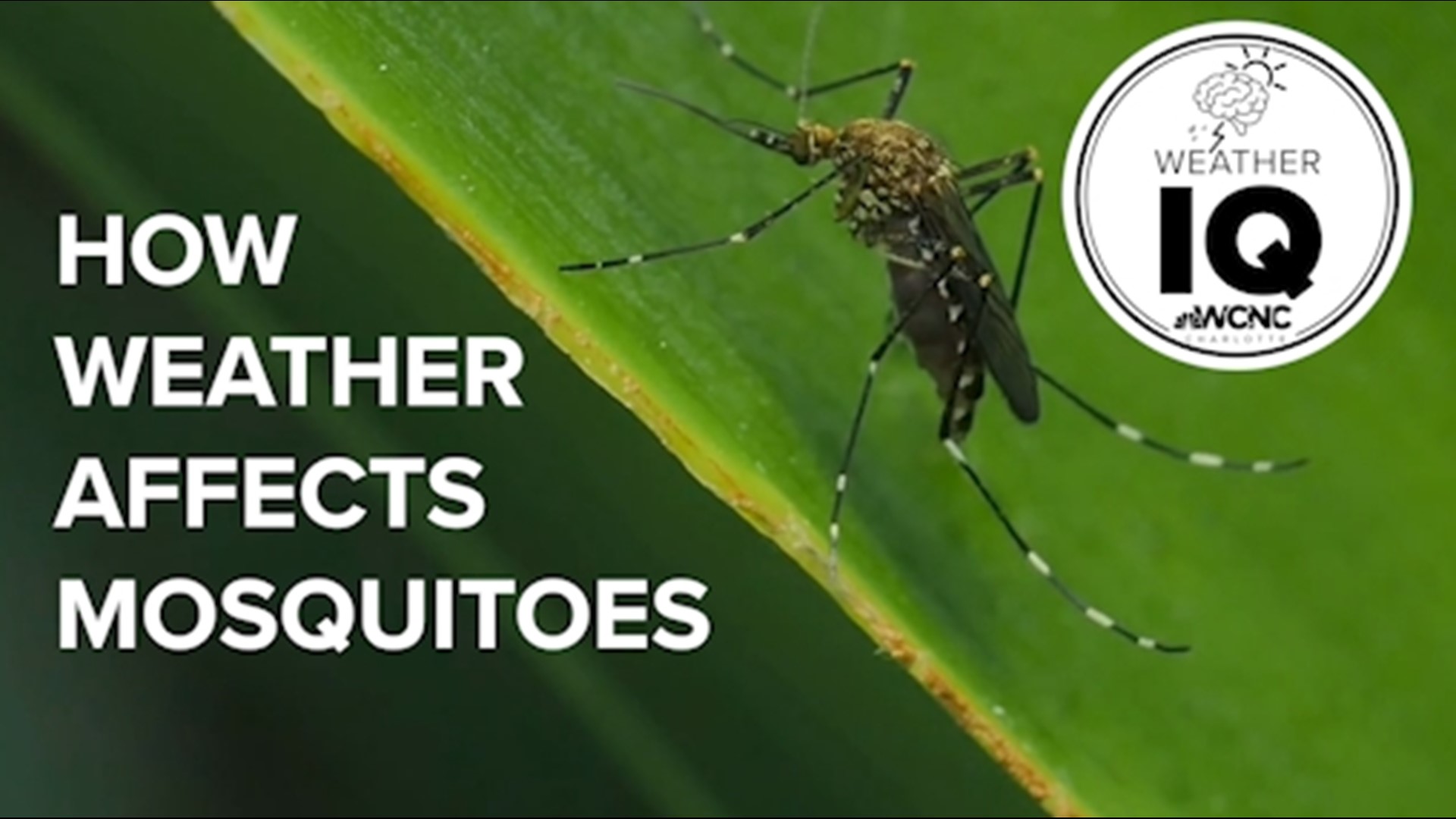CULLOWHEE, N.C. — When it comes to mosquitoes, is can't be too cold and it can't be too hot. It's a lot like Goldilocks. Weather conditions have to be just right.
And here in the Carolinas, the conditions tend to be just right for a good portion of the year.
WCNC Charlotte got some help from Dr. Brian Byrd from Western Carolina University to find out how weather affects mosquitoes to help us raise our Weather IQ.
Temperature
At 80 degrees, mosquito activity increases but the general range in which they thrive is anywhere from 80 to 90 degrees. The hotter the temperature gets away from this range, the less mosquitoes will bite.
And when temperatures are below 55 degrees, mosquito activity tends to crash.
FACT: Mosquitoes don’t make their own body heat so they rely on ambient temperature.
Humidity
The biggest driving force for mosquito activity is humidity. And contrary to what you might think, mosquitoes are less likely to be active during the peak heating of a sunny, summer afternoon.
“That’s not a great place for a mosquito,” Byrd said, explaining that's when the relative humidity is at its lowest.
Relative humidity looks like this on a typical summer day. This dip comes when it is the hottest, thus the slowest time for mosquitoes since it's the driest.
FACT: There are more than 65 species of mosquitoes in North Carolina that all have different behaviors and feeding habits.
Mosquitoes feed most commonly during the twilight periods (morning and evening).
This is when humidity values are higher and here in the Carolinas and temperatures drop into that "just right zone".
NOTE: However, some areas like the woods have their own microclimates with different humidity levels, keeping mosquitoes active for most of the day.
Rain
Water is a critical part of a mosquito's life cycle. Standing water from rain is where mosquitoes lay their eggs, taking only about seven days in the summertime since warmer temperatures help them grow faster.
Things like a garden bucket, a dog dish, a birdbath and especially an old tire are common spots.
“Even things like gutters on your house, you know they can be very productive habitats for mosquitoes,” Byrd said.
Winds
"These mosquitoes probably aren’t fighting big headwinds to come to you in most instances," Byrd said. "It’s really got to be settled down where you’re at."
A light to gentle breeze, which is 1 to 12 mph, won't really affect a mosquito. But a wind above this may be too strong for mosquitoes to fight to bite you.
Advice
Regardless of the weather remember the 3 D's: Dress, Defend and Drain.
- Dress in light-colored clothing and cover up your skin
- Defend with a CDC and EPA-approved repellant
- Drain any water that could be around your home.
Contact Chris Mulcahy at cmulcahy@wcnc.com and follow him on Facebook, Twitter, Instagram and TikTok.

